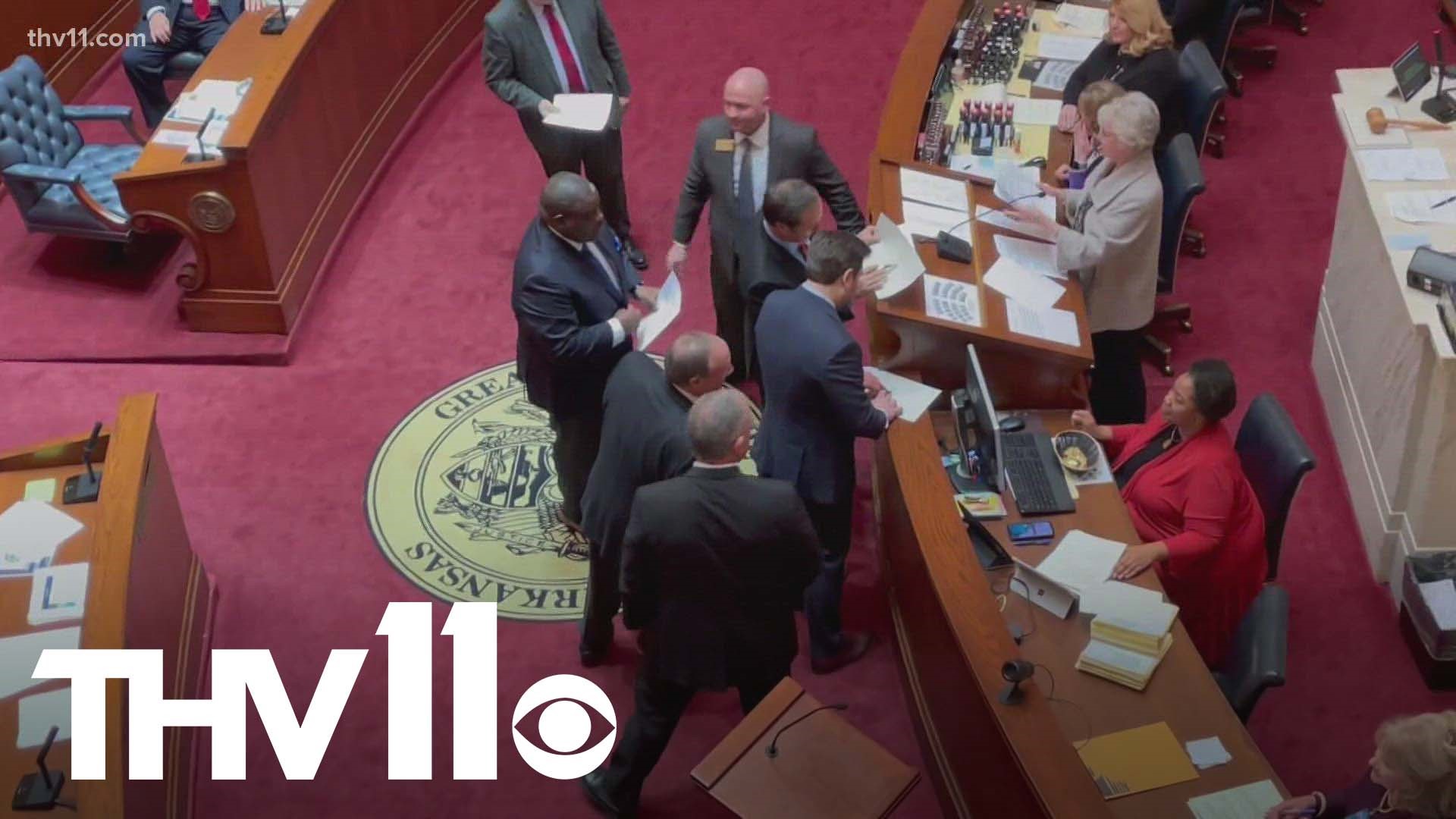LITTLE ROCK, Ark. — While controversial and high-profile bills tend to get the bulk of the attention, dozens of pieces of legislation move through the state capitol every session essentially going unnoticed.
As more and more bills are brought upon by local lawmakers, many in the state are still unsure as to how a bill makes it to a vote.
Interim Director of School of Public Affairs at UA Little Rock, Dr. Joseph Giammo said the start of the legislative session is typically a busy time at the capitol.
“Generally, what tends to happen is a legislator has an idea. There's an office at the capitol that will help them turn it and turn it into legal language, [and] reference the appropriate parts of the code,” Giammo said.
He said from there, there’s roughly a 2-month window to get it passed during the session.
“There’s lots of bills filed, only a small percentage of them are actually going to end up becoming law,” Giammo said.
From there, the bill goes to either the Speaker of the House, or the senate majority leader, then they choose what committee it goes to.
“A lot of times, it's just routine. If your bill deals with agricultural issues, it's going to go to the agricultural committee. But, they have that freedom to make that choice-- and of course, that can matter,” he said.
According to Giammo, responses to proposed bills vary depending on the committee handling it.
But once a bill gets to committee, that's when hearings begin to take place for the bill.
There may be experts that come in to testify and at the state level, even individual citizens have an opportunity to try to testify.
“Just because [a bill] passes one [committee], doesn't mean it's even going to be considered in the other," Giammo said. "You still have to have a sponsor in the other house, who's willing to do that work and push for it. And it's got to go through that whole process again, in the other chamber.”
He added that often times a bill could look completely different after it passes from the time it was filed.
“You are going to have lots of opportunities in committee. Lots of opportunities on the floor of the house or the senate to make changes,” Giammo said. “Since you need to convince a majority of your colleagues to pass it, you're probably going to have to compromise along the way in order to get it done.”
If the session ends and your bill isn't passed, you'd have to refile it in the next session.
“What you tend to see is, things that are at all controversial tend to get passed towards the end of the session because that's going to take more time to build that support to get a majority at each step along the way and get it passed,” he said.
Giammo mentioned that it’s important to remain informed on which bills are currently filed. He encourages you to reach out to your state senator or state representative if you have concerns over a bill.

